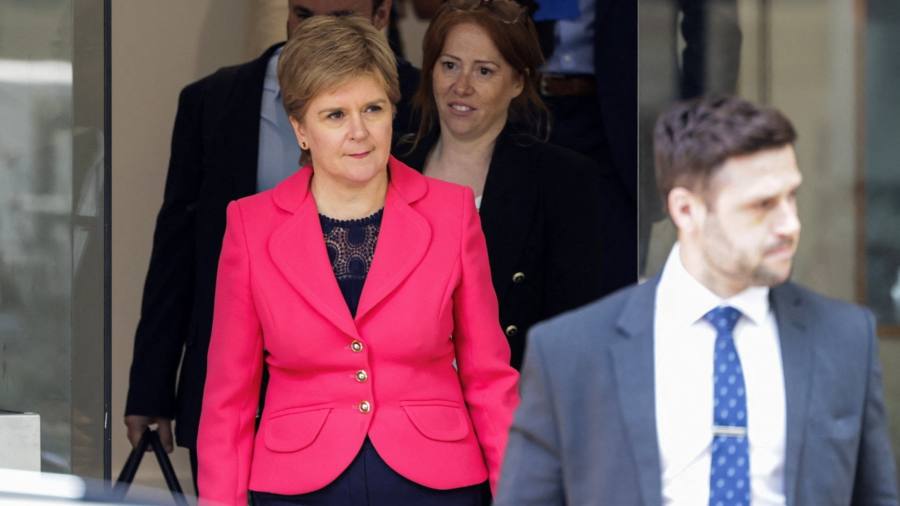
Receive free UK Covid inquiry updates
We’ll send you a myFT Daily Digest email rounding up the latest UK Covid inquiry news every morning.
Gaps in the Scottish government’s planning left the country underprepared for the coronavirus pandemic, but preparations for a no-deal Brexit hampered its ability to update its strategy, former first minister Nicola Sturgeon said on Thursday.
Sturgeon, who stood down as first minister and leader of the pro-independence Scottish National party in March, told the UK’s Covid-19 inquiry that her administration had done its “best to take the best possible decisions” but “did not get everything right”.
Sturgeon admitted that a plan adopted in 2011 as part of a “four nations” approach to combating an influenza outbreak had not been updated since then. But she said she did not believe that a “tweak” to that strategy would have made a difference to Scotland’s fight against Covid.
“Do I accept that the plan was inadequate? In summary, yes,” Sturgeon told the inquiry. “The plan was for a different type of pandemic than the one we unfortunately were confronted with.”
Her comments on the UK having prepared for a different pandemic than the one that struck in early 2020 echo evidence from previous witnesses, including former UK health secretary Matt Hancock.
Asked about the impact of Brexit on Scotland’s response, Sturgeon said it was a matter “of deep and extreme regret” that work on pandemic preparedness was disrupted by the diversion of resources towards planning for a no-deal exit from the EU.
“Had a no-deal Brexit happened . . . the consequences of that would have been very, very severe,” she said. “So it stands to reason that with so much effort on that, there was going to be less resources available for other aspects of emergency planning.”
Sturgeon and John Swinney, who was her deputy and responsible for co-ordinating Scotland’s Covid recovery until he also stepped down in March, were the most senior Scottish officials to be questioned by the inquiry’s lawyers.
Asked by Kate Blackwell KC if the Scottish government had been “sluggish” in implementing its own plans for pandemics — dubbed Silver Swan and Iris — between 2016 and 2018, Swinney insisted that the lack of updates did not mean work was not being done and shared with health boards.
Sturgeon, who was arrested this month as part of a police probe into the SNP’s finances, also accepted an assertion by Hugo Keith KC, lead counsel inquiry, that Scotland could have held a clear debate on measures such as social curbs and mass testing, had officials anticipated a non-influenza pandemic.
Sturgeon won plaudits for her empathetic and considered handling of the pandemic, often drawing favourable comparisons with then UK prime minister Boris Johnson. That helped boost her personal approval ratings as well as support for Scottish independence, which peaked at 58 per cent in an Ipsos poll in October 2020.
But data showed that Scotland did not necessarily fare better than England, and Scotland in early 2022 recorded higher per capita deaths in cases where the coronavirus was mentioned on the death certificate.